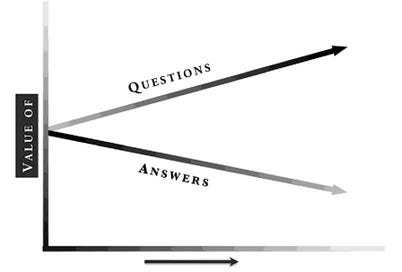You should behave in such a way that you can say to everybody, “Behave as Ido.”
- Immanuel Kant
"Before you begin, think as if you are a lazy person. Imagine the competition will work harder. Your only chance is a better strategy. After you begin, work as if you are a dumb person. Imagine the competition is smarter and more talented. Your only chance is t…


